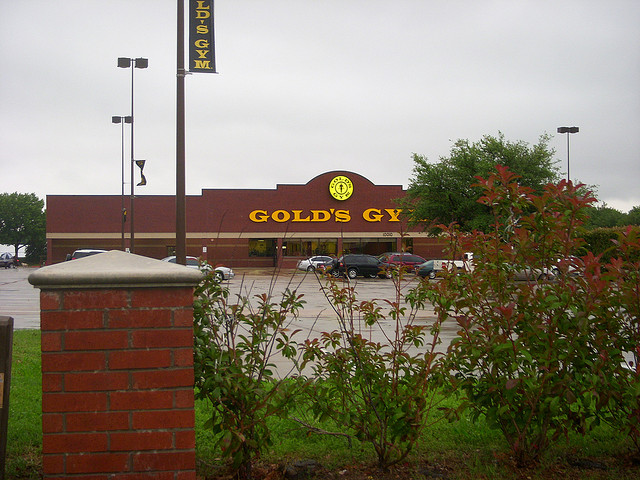Equinox. Crossfit. NYSC. Gold’s. If you’ve trained for any length of time at any corporate gym, you’ve seen the brawny legions of tee-shirt-clad action-figures putting clients through-the-paces, and each gym’s trainer-force seems to have a different “flavor”. Equinox trainers sport low-key jerseys with the word “Train”, and are reserved about approaching patrons. At NYSC the trainers “work the room” and get-to-know the patrons of their gym – one reason I have a lot of trainer buddies at NYSC. No matter where you go, though, they command respect.
Ever wanted to become a personal trainer? Where would you begin?
As we mentioned in the introductory article, the certification requirements for personal trainers very widely depending on your desired employment. There is no national or state accrediting agency, but several nationally-recognized firms administer exams and certify trainers. Which certification is best for which gym?
There are two ways to find out: ask a trainer at each of the below gyms, or just read the article.
Equinox
If you’re from New York or LA, you’re probably familiar with the uber-high-end Equinox gyms. With a vibe that’s part-yoga-studio, part-day-spa, and part-Rodeo-Drive-boutique, Equinox aims to separate itself from the experience of other gyms, and it mostly succeeds. Who are the mysterious men and women in the “Train” shirts, and how did they get there?
Certification Required: Any
Beginning in 1993, someone smart at Equinox said, “there are a lot of people paying for training certifications. What if we got a piece of the pie?” And so was born the Equinox Academy, an intensive training course whose tuition rates are guarded behind the firewall of a program advisor, but which purports to give “top” novice applicants a “leg up” in the hiring process. (“We frequently hire 50–75% of EA graduates,” says the site.)
Is this necessary to get hired? No.
A quick search of the job openings and it’s evident that the only prerequisites are experience, any national certification (the particulars of which we’ll discuss), and a current Current CPR/AED certification.
Bottom line? Talk to a random sample of trainers – both at Equinox and other gyms – before you sign up for an expensive course. Did the Equinox trainers all take it? What qualifications did those that didn’t have? Do those that took the course seem to have an advantage in terms of numbers, success/promotion rate, and clients?
Town Sports – NYSC, BSC, PSC, WSC
If you live on the East Coast you can’t miss the Town Sports franchise that swallowed all the old Golds and Worlds gyms whole. Town Sports aimed to offer size as its principle competitive advantage – allowing members to visit multiple locations depending on which is convenient. In New York it’s like the Post Office.
NYSC treats trainers more like independent contractors, which is why a far greater percentage of trainers cut their teeth at NYSC and its ilk than at Equinox, but because it doesn’t “in source” its trainer-training, the certification requirements just to get-in-the-door are somewhat higher.
Certification Required – National Certificate of Personal Training (CPT) or Bachelors Degree in Exercise Physiology, Kinesiology, Recreation or P.E. related field
NYSC gives its trainers two options – pass a CPT exam or get a bachelor’s in an exercise science. (CPT, unlike GMAT or SAT, is not a single, official exam – each of the four major certification agencies offers its own, and most gyms will take any.) As many trainers I’ve met are transitioning from other career fields, including business, music, and even professional and semi-professional sports, most opt for the former, buying the CPT books and/or registering for the paid test-prep the certification agency offers in-house.
Gold’s
Gold’s…s are scare in East Coast cities (we do have them, but they’re lost in a din of NYSCs), but don’t let that fool you. They’re the most ubiquitous gym in the world. (Source, which I can’t vouch is totally unbiassed;) Gold’s site, much like Equinox’s, is mum about the particulars of the job, payscale, and qualifications (inviting potential applicants to submit a resume, then they’ll call you if they’re interested), but luckily the folks over at Live Strong, along with a few fitness forums and several personal colleagues of “the author”, fill in the gaps.
Certification Required – any of the four biggest national agencies – NASM, ACSM, NSCA, or ACE, within 90 days of hire.
As with other chains, getting hired is not just about the certification, but is rather an alchemy of experience, fit-with-the-gym, appearance (let’s not kid ourselves), and competitiveness of the job market in your town or city. Officially, Gold’s will hire you without a certification, but you’ll have to get it anyway, so you might as well get it first. And don’t waste your money on a BA in kinesiology just to get-in-the-door at Gold’s, unless you value the knowledge beyond its ability to get you hired. A BA will help at Gold’s (and knowledge will help make the certification exams easier), but you’ll still have to pay/study for the exam.
Unlike Equinox, Gold’s doesn’t offer in-house training, and its pay model is even further to the extreme of “freelance”. Basically, Gold’s will let you use their space for a flat-fee-per-hour once they’ve vetted you, and you can charge your clients whatever you want, and keep the profit. This is a good setup for trainers looking to build a client base, or even highly-experienced freelance trainers without the investment money to rent or buy their own space.
Crossfit
Crossfit has the outward appearance of a boxing gym or a military training facility, but its business model has more in common with Equinox than with either. In fact, Crossfit has gone even further to “in-house” all of its employment avenues. (It makes sense from both an exercise science perspective – founder Greg Glassman questioned and reinvented most of the conventional wisdom around fitness and strength – and a business perspective – if you do your own certifications, you keep all the money.)
Search the job boards for crossfit “coaches” (they’re not called “trainers”), and you see a totally different nomenclature than most trainer postings. So here it is-
Certification Required – Crossfit L1 (for most jobs)
Crossfit runs its own training and certification process, and has its own classification for competency, with L1 being the most basic. End-to-end, gaining L1 will cost you $1000-and-up. (The “is it worth it” question depends on a few factors, and I’ll address it below.) Just like with Equinox, an L1 is not a guarantee of a job – experience, “soft skills” like rapport with gym owners, and the need or lack-thereof for employees all factor in (starting to see a theme?).
Here are a couple of FAQs-
Will other certifications help me get Crossfit jobs?
Almost always, since experience counts. It’s the experience that’s most important, though, not the piece-of-paper. And either way, you’ll need at least your L1 if you want to coach at a “box” (the name for a Crossfit franchise, which, if you’ve read this far, you probably already know).
Should I get certified in Crossfit if I don’t plan to work exclusively at Crossfit boxes?
If you’ve got the money to spend, it can be beneficial. “Coach” Glassman’s philosophies are gradually becoming “mainstream”, and other fitness chains are starting to co-opt parts of them, so a foundation in “WOD Science” can give you a leg up. Moreover, many freelance trainers appreciate having a broad base of knowledge and experience to draw-upon when recruiting and training clients.
——————–
So there you have it. I hope I’ve given you an overview. I’m sorry to tell you even the best article can’t replace a few conversations with flesh-and-blood trainers at some of your favorite gyms, but if I’ve done my job you’ll be armed with some basic knowledge and less likely to spend money on something you don’t need, or to jump into a career path without knowing all the options.
If you haven’t read the introductory article, I recommend you read that as well. As I mention there, veteran trainers/coaches will tell you not to get into this profession unless you love it, and if you do love it and work hard for long enough, it’s hard to go wrong.
See you in a future installment!




